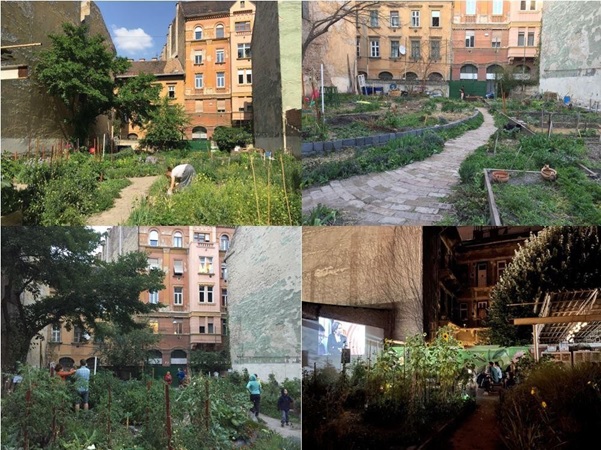Community gardens as prime example of commons in Budapest
Edited on
18 February 2022The easiest way to make people in Budapest understand how urban common works is perhaps a reference to community gardens of which many dozens operate in the Hungarian capital city.

Turning empty lots into flowering and food producing gardens has become very popular over the past decade among both citizens and local government officials.
Urban gardens can address many of the challenges of today's cities, including food security, underutilized urban spaces, scarce green spaces, individualization, declining civic participation and job creation. In addition to providing space for recreation and relaxation, they also play an important role in climate adaptation. Community gardens cool down cities, locally grown food results in fewer harmful emissions and they can also utilise compostable urban waste. Community development is an essential byproduct besides providing chemical-free food and the activities bring both adults and children closer to nature.

Hungarian Contemporary Architecture Centre - KÉK has played a major role in the dissemination and development of urban gardening in Hungary. Since 2010 they have been working on the methodology, legal framework and models related to community gardens that are adaptable to the domestic environment. Apart from providing education and maintaining a knowledge base, they are also known for the creation of the first model garden (Lecsós Garden in 2011) which was situated in a new public park and has closed since then. Today KÉK is a professional partner and consultant in the creation and maintenance of community gardens in many districts of Budapest. Besides knowledge transfer, one of their important goals is to create a national network of community gardens and to connect them with similar international platforms. Currently, their website (kozossegikertek.hu) lists nearly 80 active Hungarian community gardens, with up-to-date information.
According to a study published in 2020, urban gardens in Budapest are all characterized by the importance of community governance, autonomous operation and high-level cooperation among members in sharing of the tasks, tools and resources. Usually the local government is either the initiator or a strong supporter of the gardens. Probably the is why, compared to other countries, civic identity is not prominently strong in the garden community.
Community gardens in Budapest are usually fenced for protection, therefore they only serve a closed community within the neighbourhood. Recently we experience a growing demand for community parks, open green areas that are maintained by local people. One of the 15 winner projects of the first participatory budgeting term of Budapest is the transformation of a now closed green area into a pilot community park. Reclaiming unused open space for the public is also a strong issue in Budapest, especially among the riverside areas of the Danube.
(Written by Luca Major, Budapest Scholarship holder at the Municipality of Budapest; Photo credit: Levente Polyák)
 Submitted by Laura Socci on
Submitted by Laura Socci on
